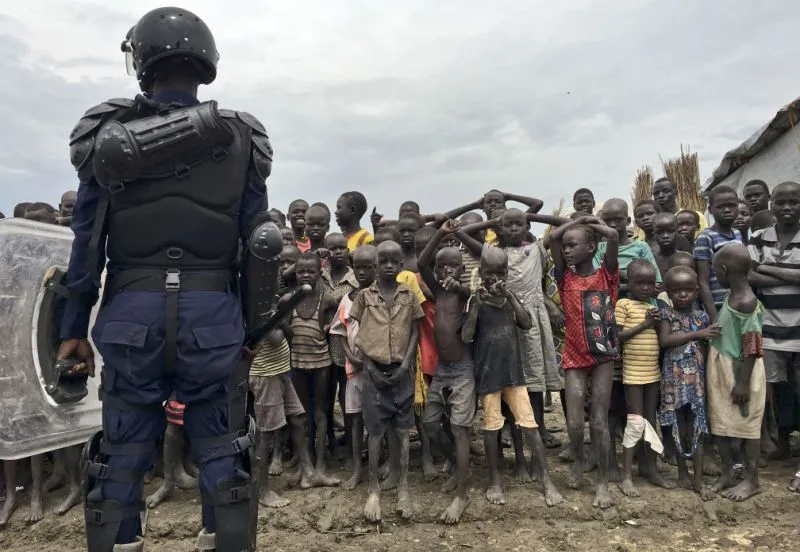South Sudan has the world's fastest growing displaced population and more needs to be done to help them, says the director of the United Nations refugee agency.
More than 4 million South Sudanese have fled their homes, nearly 2 million of whom went to neighboring countries, said U.N. and other organizations.
The international community should do more to help South Sudan, U.N. High Commissioner for Refugees Filippo Grandi, said after visiting a camp for the displaced.
"The international neglect that you see here is matched nowhere else in the world," Grandi told The Associated Press. "Wherever you look there are dead ends."
Grandi on Sunday visited South Sudan's largest camp for internally displaced people in the town of Bentiu. It's the second largest camp for displaced in the country, after the capital of Juba, with 120,000 people living in rows of tented squalor. Although conditions are dire, most of the camp's residents are too scared to leave.
"I'm terrified," said Angelina Wicyote, a resident of the Bentiu camp. The 39-year-old mother of eight said she was chased by men with guns when she went out to collect firewood. She said she will remain in the camp for protection.
Since fighting broke out four years ago in the world's youngest nation, an estimated 2 million South Sudanese have been internally displaced, according to the International Organization of Migration. Thousands now live in U.N protected camps, making some towns and cities like ghost towns. Eighty percent of Bentiu's population now lives under U.N protection. Many, like Wicotye, are too afraid to go home.
Grandi urged South Sudan's officials to ensure safety for its people, saying that now more than ever, "authorities have a greater responsibility to provide security."
After seven months of negotiations, the government agreed to lease a tract of land for internally displaced people in Bentiu. Two weeks ago, residents in the protection camps were given an opportunity to leave the U.N site and start afresh. Many in the protection camps fear they will be targeted by ethnic violence if they were to leave the camps.
The government is taking steps to improve safety by increasing patrols and making it illegal for off-duty soldiers to take their guns from the barracks, said Bentiu's Acting Governor George Ruony Badeng.
Humanitarians say it seems to be working. A reported 39,000 people are now living in the new community, according to the Danish Refugee Council. However, they say that due to South Sudan's overall instability, things could change in an instant with a new outbreak of violence. Many people aren't willing to take the risk of living outside of protected camps.
Grandi, the director of the U.N.'s refugee agency, said the only solution is peace.
"I was hoping South Sudan wouldn't need UNHCR anymore," said Grandi. "Unfortunately our services are still required."